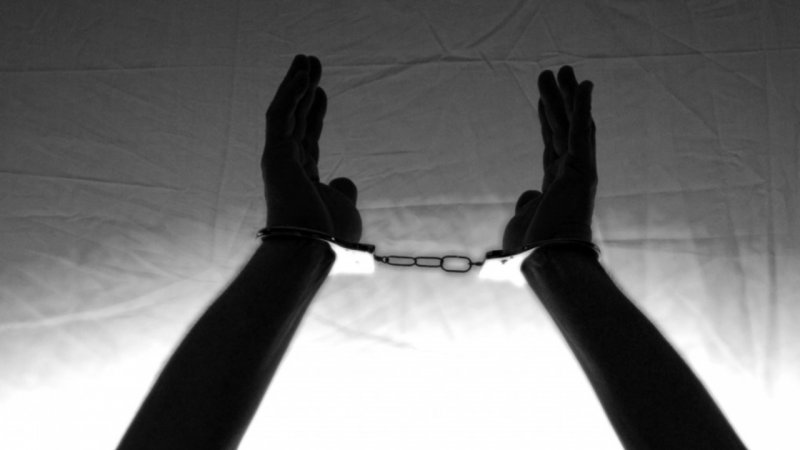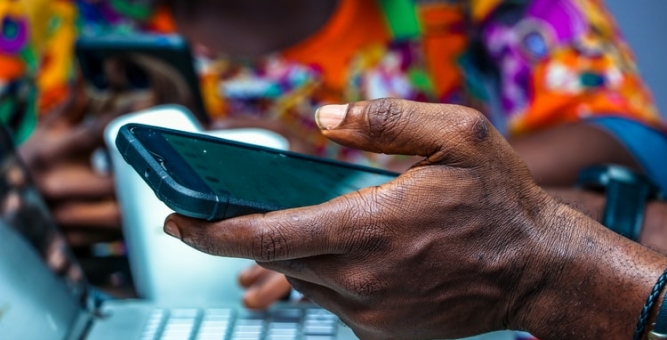By Ashnah Kalemera |
The Collaboration on International ICT Policy in East and Southern Africa (CIPESA) is pleased to announce that a total of USD 150,000 has been awarded to 13 entities under the fifth round of the Africa Digital Rights Fund (ADRF). Now in its second year, the latest round brings to USD 564,000, the total amount awarded by ADRF to 45 initiatives working to advance digital rights across the continent.
The winning entities will undertake research, capacity building, awareness raising, advocacy and stakeholder engagements in 25 countries – Algeria, Benin, Cameroon, the Central African Republic, the Democratic Republic of Congo (DR Congo), Egypt, Ethiopia, Gabon, Guinea, Kenya, Liberia, Libya, Malawi, Morocco, Rwanda, South Africa, Sierra Leone, Senegal, South Africa, South Sudan, Sudan, Tanzania, Tunisia, Togo, and Uganda.
While Artificial Intelligence (AI) is gaining prominence, the field and its intersection with the rights to freedom of expression, privacy and equality remain understudied in Africa. Alt Advisory will map private and public sector AI applications in South Africa and develop a framework for a rights-based assessment of such applications across the region. The research findings will feed into the development of an accessible web-based resource. Further, a series of consultative workshops will be hosted to raise awareness and engage stakeholders on safeguarding human rights in the context of AI, so as to inform future interventions such as a complaints mechanism, best practice guidelines, a model law, or strategic litigation.
Building on work around visualisation of the state of the Covid-19 pandemic in Africa, including lockdown restrictions, monetary policy responses and vaccine roll out, Covid Watch Africa will document the digital threats faced by civil society organisations and independent media in Africa and responses in the context of the pandemic. The analysis will inform campaigns and interactive media resources on operational capacity for digital resilience of Covid Watch Africa’s partner organisations and press corps members in 16 countries.
In the DR Congo, second time grantee Rudi International will continue to foster digital rights among key actors, this time targeting the National Assembly. Under the umbrella of the Association of Young Parliamentarians, Rudi International will engage members of the assembly on the Telecommunications and Technology Committee on the prevailing ICT policy landscape, how to champion positive reforms and ally with digital rights organisations. The engagements will also build the legislators’ digital security knowledge and skills.
With a new president in Tanzania, Zaina Foundation will convene a multi-stakeholder dialogue on internet rights and governance to seek the government’s commitments not to entrench digital repression but to promote progressive legislative and practical reforms instead.
Tunis-based Digitally Yours will study civic technology initiatives by governments and civil society in Algeria, Egypt, Libya, Morocco, Tunisia, and Sudan to establish the reality beyond the hype. Through interviews with relevant actors and use-case analysis, Digitally Yours will explore the civic tech platforms’ utility, extent to which they uphold or undermine human rights, and potential for replication. Among the initiatives to be studied are open data portals, eGovernment services, Covid-19 vaccination portals, and online child abuse reporting channels. The findings will be published as multilingual commentaries, videos and podcasts.
Still on civic tech, and in line with the objectives of Somalia’s ICT Policy and Strategy 2019-2024, the Bareedo Platform will engage local government authorities in Garowe and Mogadishu on digital transformation for efficient service delivery, citizen empowerment and government-citizen interactions through hosting of roundtables and advocacy campaigns.
In Kenya’s largest informal settlement, Kibera, work by Tunapanda will provide grassroots women human rights defenders and feminist organisations with training on digital literacy, digital safety, content creation, digital rights, anti-censorship technologies, and civic participation online. These efforts will be complemented with the production of podcast series and comic strips to advance knowledge and sustainability in human rights advocacy.
Through digital security capacity building and advocacy, the Gender Tech Initiative will work to counter online gender-based violence against women journalists, bloggers, community leaders, feminists and activists in the northern Uganda districts of Kitgum, Lira, Pader and Nwoya. It will build these actors’ knowledge on the intersection between online gender-based violence and human rights work, and the appropriate response strategies against digital security challenges. Similarly, Girl Up Vine Club will train women, youth and journalists on women’s inclusion and safety online in Sierra Leone, alongside conducting nationwide television and radio campaigns against online sexual harassment.
Media Monitoring Africa (MMA) will raise awareness of Real411 – an independent digital platform for combating digital harms in South Africa through the production of multilingual animation videos on how to spot disinformation, and how to report to Real411. As the Secretariat of Real411, MMA will also develop a communications strategy to ensure wider audience reach, review the platform’s user experience and refresh the format of publication of outcomes of complaints assessments. Established in 2019, Real411 is run in partnership with the South African National Editors Forum (SANEF), the Press Council and it is endorsed by the South African government as the mechanism to help combat Covid-19 disinformation.
Still on combating online harms, Youth Net and Counselling will address growing misinformation and disinformation in Malawi through bulk SMS dissemination, radio talk shows, social media campaigns, performing arts and capacity building of journalists in fact checking.
Meanwhile, Sierra Leone youth advocacy and leadership organisation Chozen Generation will work to strengthen the capacity of youth activists and journalists in engagement and advocacy around the Access to Information law, 2013 and the recently passed Cybersecurity Act, 2021. Chozen Generation will also explore regulatory gaps in data protection and privacy, as well as consumer protection.
Lastly, PolicyLab Africa will develop digital literacy multi-media content and training modules and host digital literacy cafés targeting journalists, media and activists from Cameroon, Ghana and Nigeria.
As with the first and second round of grantees, the fifth round grantees will be eligible for technical and institutional capacity building, including on data literacy and advocacy skills through the Data4Change initiative.
In the inaugural round of ADRF, initiatives with activities spanning 16 African countries received a total of USD 65,000. The second call for applications saw a total of USD 152,000 awarded to 14 initiatives to advance digital rights through various projects in 18 African countries. In its third round, the ADRF awarded USD 138,000 to 11 initiatives responding to the digital rights fallout from the fight against Covid-19. The fourth round awarded USD 63,000 to eight current or previous grantees to deploy six-months policy advocacy campaigns that further the conversation on internet freedom in Africa.
The ADRF’s supporters have included the Centre for International Private Enterprise (CIPE), the Ford Foundation, the Swedish International Development Cooperation Agency (Sida), the German Society for International Cooperation Agency (GIZ), and the Omidyar Network.





